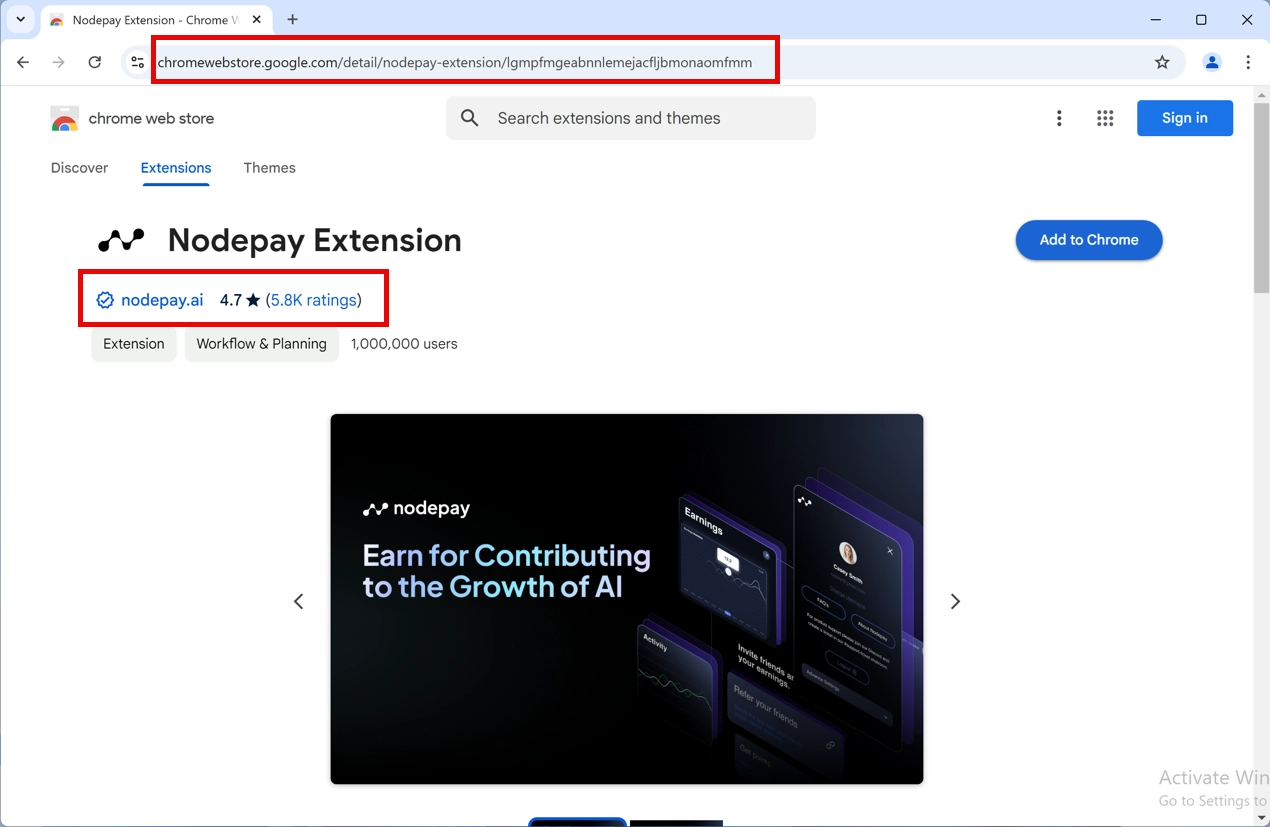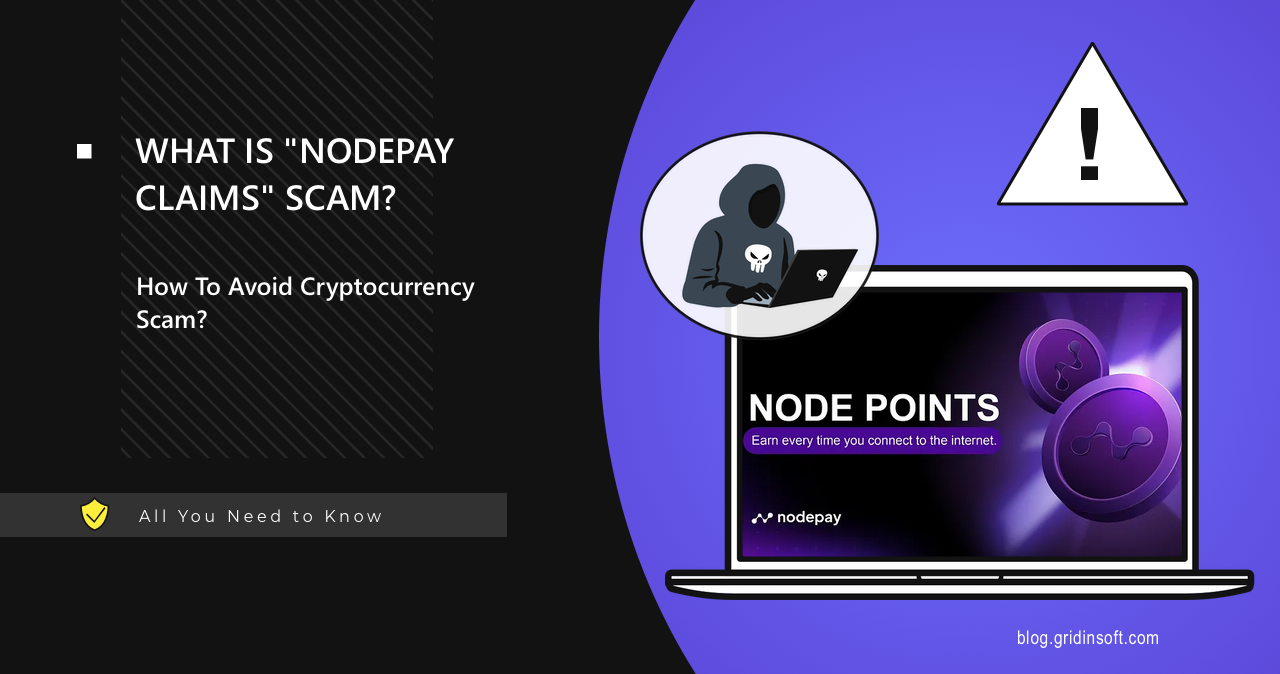“NodePay Claims” is a selection of websites that impersonate NodePay, a legit AI training platform. These sites offer sharing their computers’ power to facilitate the training process of AI models for a small fee. In reality, it is a scam website designed to empty victims’ crypto wallets. In this article, I will explain in detail how this scam works and how to recognize similar frauds in future.
What is NodePay Claims Scam?
The NodePay Claims scam website is a fraudulent campaign designed to steal digital funds by pretending to be the official platform of NodePay. Hackers copy the style of the original page and lure people into it through social media posts and advertisements. The scam eventually functions as a crypto drainer, emptying wallets that users have connected to the website.

The fraudulent website closely mimics the legitimate NodePay service, which really allows users to share their bandwidth and anonymized data for AI training. For doing this, users are promised to receive a fee in crypto – another detail that corresponds to the real site. However, the page has no connection to the real service, and has a lot of mechanisms that aim at scamming the users.
How does the NodePay Claims Scam Work?
The scam initially appeared on event-nodepay[.]site, but it is expected for fraudsters to use other domains for the same purpose. Con actors promote these fake pages on social media and through advertisements, I will get into details a bit later. This is what makes the victim believe they face legitimate service and proceed to the scam website.
There are two actions that the website asks the users to perform in order to start “earning with their network bandwidth” – install a browser extension and link the crypto wallet. And, once again, both actions seem legit, as exactly the same thing is needed to start up on the original page.
Once a wallet is connected, users unknowingly authorize a malicious smart contract that automatically transfers funds from their wallet to the scammers’ accounts. Thing is – because of how cryptocurrency transactions work, there is no way to cancel them or get the funds back. As the immediate result of the scam, users are left with empty crypto wallets.
Cryptocurrency drainers have become a rather widespread type of crypto scams over the last year. They are based off of the algorithm that sends all the contents of the linked wallet to the one controlled by scammers. Websites that facilitate such fraudulent activity are short-lived, yet heavy promotion provides enough victims to keep the scheme profitable.
But another risk that the victims face is the browser extension that NodePay Claims scam asks the user to install. In some of the cases, fraudsters offered a legit extension, but there were cases when it was yet another counterfeit. It is possible to build an infostealer into the extension, meaning that installing it will expose all the online accounts you use in the infected web browser.

Promotion Methods
Fraudsters popularize the NodePay Claims scam through several methods, mostly concentrating around social media and advertisements on the Web. By creating enticing posts on Twitter, Facebook and in Discord, frauds attract the attention of crypto enthusiasts, who are additionally confused by the legitimate name.
In social media that offer toolkits for advertising campaigns, it becomes even easier to reach the appropriate audience. Some of the fraudulent activity of the same direction from the past also used compromised accounts of well-known brands and celebrities to promote the scam website. We’ve made a dedicated article about a whole pandemic of scam promotions from hacked accounts on X/Twitter.
The last, but not the least method is YouTube videos. It is common to see con actors using popular event live streams to spread links to the scam, claiming it to be a part of the offer from Elon Musk, Bill Gates or another well-known celebrity. In a similar fashion to X/Twitter scams, fraudsters can compromise large channels and broadcast deepfake AI generated videos to propagate the fraudulent site to a wide audience.
How to Protect Against Crypto Scams?
To avoid falling victim to scams like NodePay Claims, one key rule is to double-check website URLs, as scammers often use typosquatting or similar tricks. A simple check of the address bar in the web browser can save you a lot of time and money.
Advertisements or offers that seem too good to be true should be treated with suspicion, especially if they promise free cryptocurrency or other rewards. They should be treated with even more suspicion when coming from a person who never participated in such activities before. Considering that even large corporations and celebrities are not immune to hackers, their authority should not be a reason to trust the offer, too.





